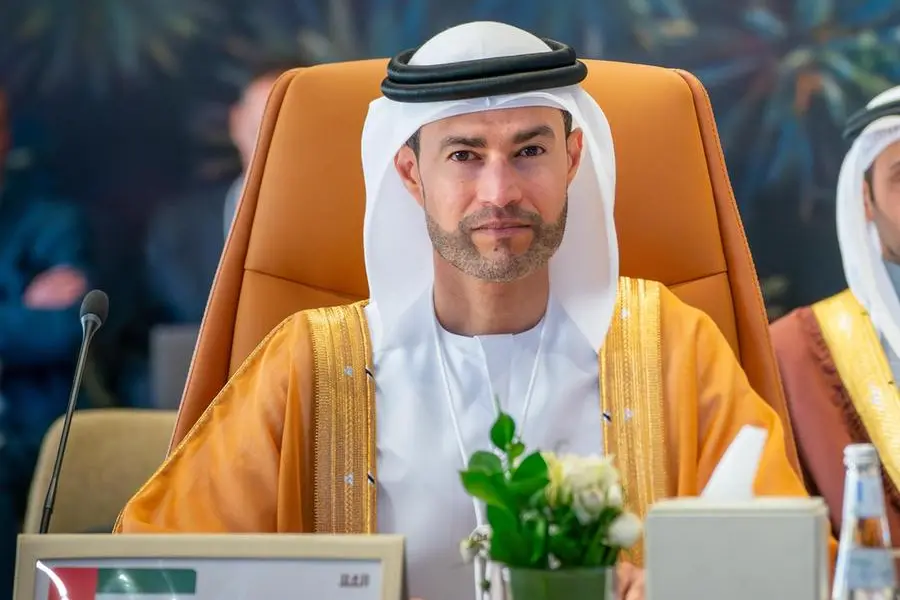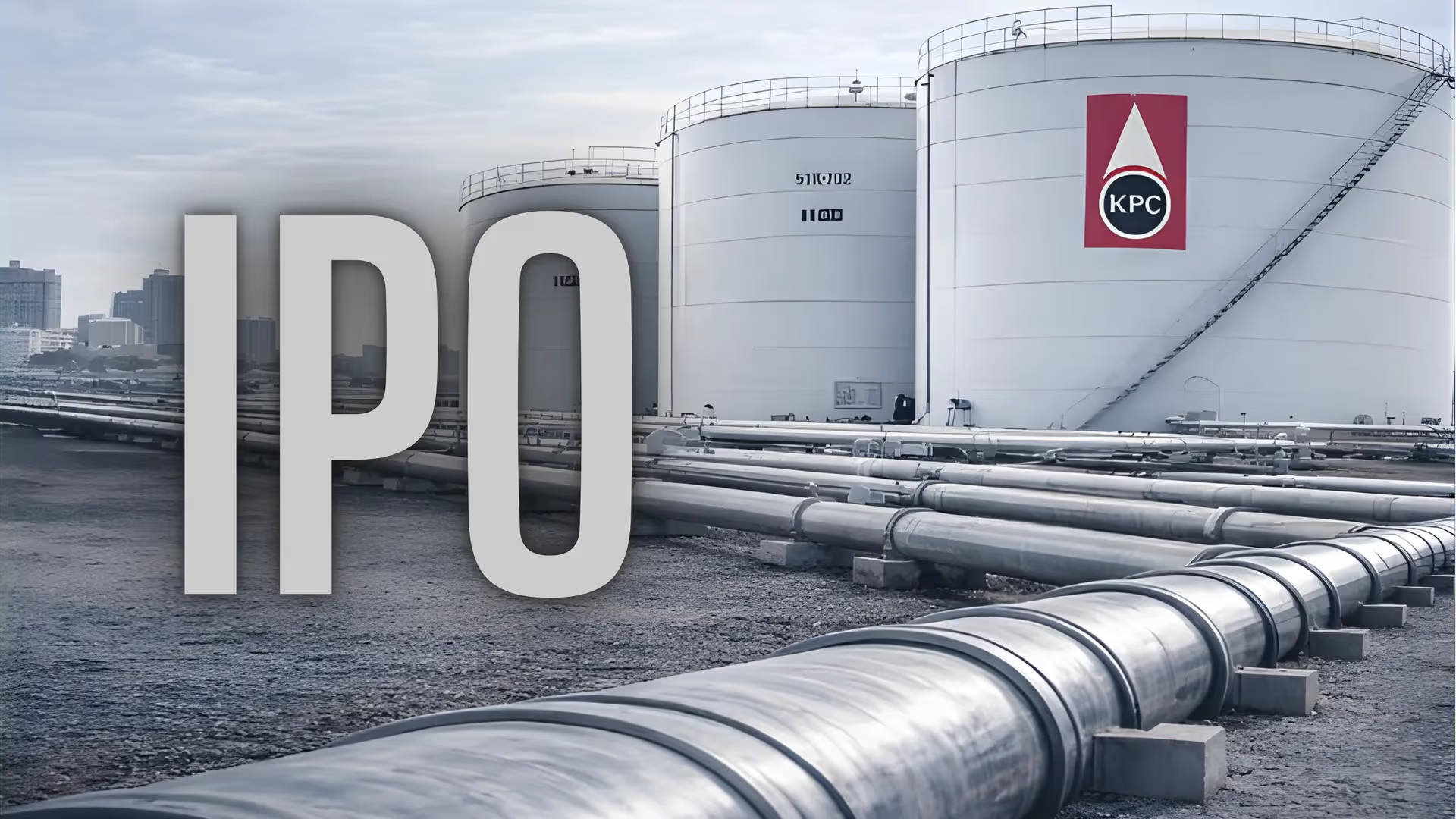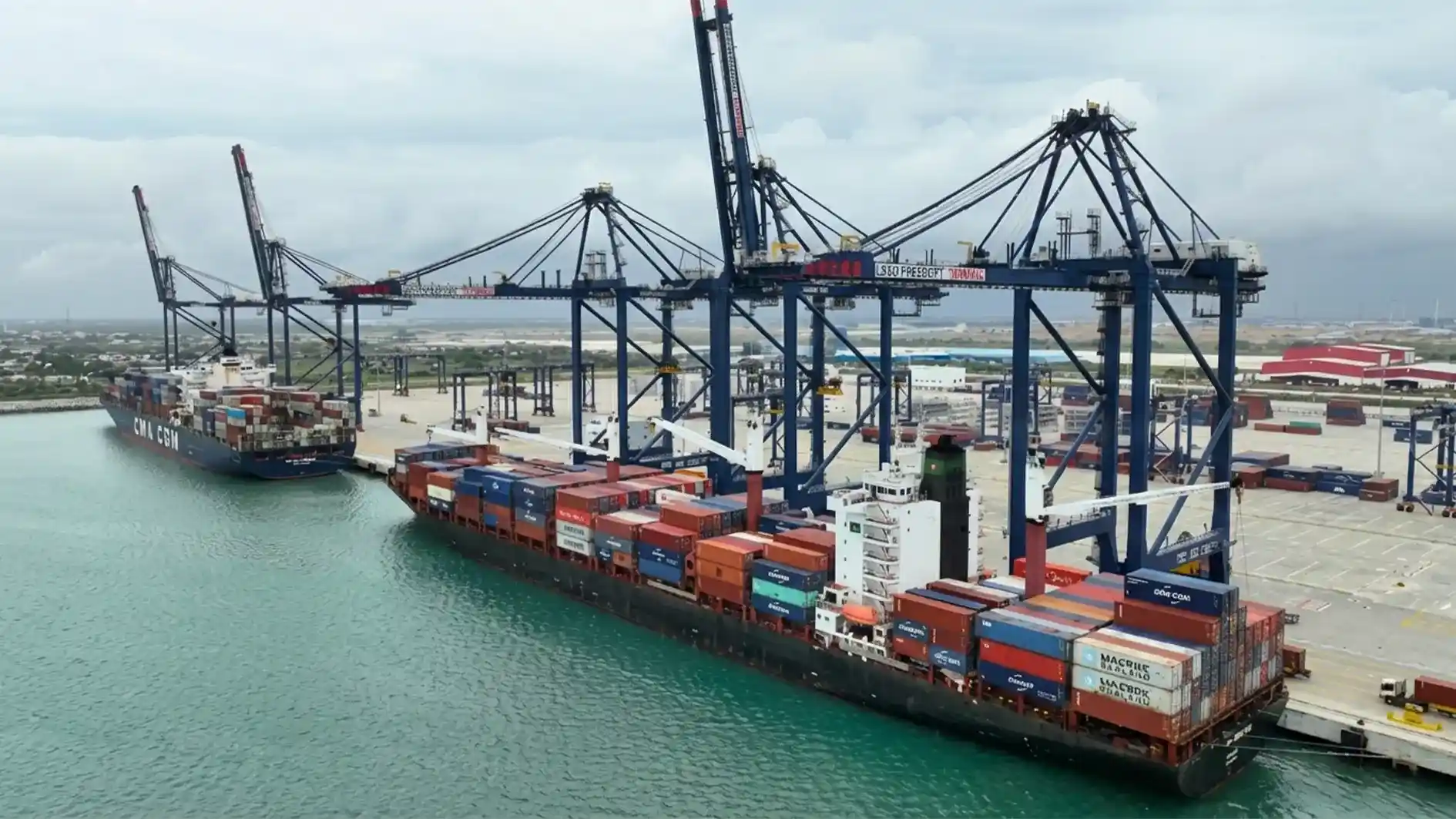The AlUla Conference for Emerging Market Economies, held in AlUla, Saudi Arabia, on February 16-17, 2025, brought together prominent policymakers, financial experts, and global economic leaders to discuss pressing economic challenges and strategies for resilience. The event, organized by the Saudi Ministry of Finance and the International Monetary Fund’s (IMF) Regional Office in Riyadh, served as a vital platform for dialogue on issues affecting emerging and developing economies (EMDEs).
One of the key participants in the conference was Mohamed bin Hadi Al Hussaini, the UAE’s Minister of State for Financial Affairs, reaffirming the UAE’s commitment to international economic cooperation and financial stability. The high-level discussions focused on macroeconomic shifts, debt crises, trade disruptions, and strategies to enhance economic resilience.
As the global economy undergoes structural changes marked by geopolitical tensions, supply chain disruptions, inflationary pressures, and debt vulnerabilities, the conference played a crucial role in formulating strategies for sustainable financial growth in emerging markets.
Key Economic Challenges Highlighted at the Conference
At the conference, experts and policymakers engaged in a series of roundtable discussions and panel sessions addressing the most pressing economic challenges facing emerging markets and the global economy.
1. Economic Recovery in Post-Conflict Middle Eastern Economies
One of the standout sessions was “Working Together to Support the Recovery of Middle Eastern Economies Post-Conflict.” This high-level discussion, attended by representatives from the GCC, G7 nations, the IMF, the World Bank, the European Commission, and the Arab Coordination Group, focused on the economic implications of conflict and political instability in the Middle East.
The discussions revolved around:
- The role of international financial institutions (IFIs) in post-conflict reconstruction
- Debt relief and economic stabilization policies for war-affected economies
- Investment in infrastructure and rebuilding efforts to restore growth
- Strengthening regional and international partnerships to promote stability
Al Hussaini emphasized the UAE’s role in supporting economic recovery in conflict-affected countries, citing its initiatives in humanitarian aid, infrastructure development, and financial assistance across the region.
2. Emerging Markets Amid Structural Shifts in the Global Economy
Another critical panel, “Emerging Markets Amid Structural Shifts in the World Economy,” addressed the economic transformations caused by rising geopolitical tensions, inflationary trends, and shifts in global trade dynamics.
Key takeaways from this session included:
- The impact of global monetary policy changes on currency stability and inflation
- The role of digital transformation and technology in reshaping global markets
- Supply chain realignments and trade diversification to enhance economic resilience
- The risks of protectionist policies and their impact on developing economies
Speakers highlighted that emerging markets are highly vulnerable to external shocks, and policies aimed at diversifying economic structures are crucial for long-term sustainability.
3. High Debt and Limited Fiscal Space: Addressing Debt Crises
A major concern raised during the conference was the rising debt burden among emerging economies. The session titled “High Debt-Low Fiscal Space—Fiscal Consolidation and Multilateral Solutions to Debt Restructuring” explored debt sustainability challenges and fiscal consolidation strategies.
Key issues discussed:
- Rising debt distress in emerging markets, with some countries struggling with unsustainable repayment obligations
- The role of multilateral institutions such as the IMF and World Bank in offering debt relief and restructuring mechanisms
- The importance of domestic revenue mobilization to reduce dependence on external borrowing
- The need for improved debt transparency and governance
Al Hussaini noted that fiscal discipline, public financial management, and increased private sector participation were essential for strengthening economic resilience.
4. The Impact of Monetary Policy and Capital Flows on Emerging Markets
With global interest rates rising and financial markets experiencing volatility, the session “Monetary Policy and Capital Flows Amid Elevated Uncertainty” focused on the implications of changing monetary policies for emerging markets.
Main discussion points:
- The effects of higher interest rates in advanced economies on capital outflows from emerging markets
- The need for stronger foreign exchange reserves to mitigate currency depreciation risks
- Challenges in attracting sustainable foreign investment in uncertain financial conditions
- Policy coordination between central banks to enhance monetary stability
Experts suggested that emerging markets should adopt adaptive monetary policies to balance inflation control and economic growth.
Strategic Partnerships for Financial Stability
Another session, “Productivity in EMDEs: Challenges and Opportunities,” emphasized the role of technological innovation and human capital development in driving productivity in emerging markets.
Meanwhile, “Navigating Trade Tensions and Uncertainties” analyzed the risks of global trade disruptions, rising protectionism, and supply chain vulnerabilities.
The closing session, “A Path for Emerging Market Resilience,” focused on:
- Strengthening domestic financial institutions
- Enhancing global economic cooperation
- Developing risk mitigation frameworks
Al Hussaini highlighted the UAE’s economic diversification model as an example of how emerging economies can reduce reliance on single revenue streams and build resilience against external shocks.
The UAE’s Role in Global Economic Cooperation
The UAE’s participation in the AlUla Conference reflects its commitment to global economic dialogue and collaboration. Over the years, the UAE has established itself as a financial hub for investment and trade, playing a significant role in bridging regional economies with global markets.
Key UAE contributions to economic resilience:
- Diversification through non-oil sectors, including trade, logistics, and financial services
- Strategic investments in infrastructure and sustainable energy projects
- Partnerships with international financial institutions to enhance global economic stability
- Innovative policies to attract foreign direct investment (FDI)
The UAE’s Vision 2050 strategy aligns with the global push for sustainable economic development, positioning it as a leader in emerging market cooperation.
Conclusion: A Roadmap for Future Growth
The AlUla Conference for Emerging Market Economies has provided critical insights into the challenges and opportunities facing emerging markets in an era of global economic shifts.
Key policy recommendations emerging from the conference include:
- Enhancing regional economic integration to strengthen trade and investment partnerships
- Implementing sustainable debt management policies to avoid financial distress
- Investing in digital and technological transformation to boost productivity
- Strengthening financial institutions to withstand global market fluctuations
As global economic uncertainties persist, forums like the AlUla Conference play an essential role in shaping policy frameworks that promote resilience, financial stability, and long-term prosperity for emerging economies.
With continued strategic cooperation, innovation, and sound economic policies, emerging markets can navigate global challenges and achieve sustainable economic progress.
Ready to take your career to the next level? Join our dynamic courses: ACCA, HESI A2, ATI TEAS 7 , HESI EXIT , NCLEX – RN and NCLEX – PN, Financial Literacy!🌟 Dive into a world of opportunities and empower yourself for success. Explore more at Serrari Ed and start your exciting journey today! ✨
photo source: Google
By: Montel Kamau
Serrari Financial Analyst
18th February, 2025
Article, Financial and News Disclaimer
The Value of a Financial Advisor
While this article offers valuable insights, it is essential to recognize that personal finance can be highly complex and unique to each individual. A financial advisor provides professional expertise and personalized guidance to help you make well-informed decisions tailored to your specific circumstances and goals.
Beyond offering knowledge, a financial advisor serves as a trusted partner to help you stay disciplined, avoid common pitfalls, and remain focused on your long-term objectives. Their perspective and experience can complement your own efforts, enhancing your financial well-being and ensuring a more confident approach to managing your finances.
Disclaimer: This article is for informational purposes only and does not constitute financial advice. Readers are encouraged to consult a licensed financial advisor to obtain guidance specific to their financial situation.
Article and News Disclaimer
The information provided on www.serrarigroup.com is for general informational purposes only. While we strive to keep the information up to date and accurate, we make no representations or warranties of any kind, express or implied, about the completeness, accuracy, reliability, suitability, or availability with respect to the website or the information, products, services, or related graphics contained on the website for any purpose. Any reliance you place on such information is therefore strictly at your own risk.
www.serrarigroup.com is not responsible for any errors or omissions, or for the results obtained from the use of this information. All information on the website is provided on an as-is basis, with no guarantee of completeness, accuracy, timeliness, or of the results obtained from the use of this information, and without warranty of any kind, express or implied, including but not limited to warranties of performance, merchantability, and fitness for a particular purpose.
In no event will www.serrarigroup.com be liable to you or anyone else for any decision made or action taken in reliance on the information provided on the website or for any consequential, special, or similar damages, even if advised of the possibility of such damages.
The articles, news, and information presented on www.serrarigroup.com reflect the opinions of the respective authors and contributors and do not necessarily represent the views of the website or its management. Any views or opinions expressed are solely those of the individual authors and do not represent the website's views or opinions as a whole.
The content on www.serrarigroup.com may include links to external websites, which are provided for convenience and informational purposes only. We have no control over the nature, content, and availability of those sites. The inclusion of any links does not necessarily imply a recommendation or endorsement of the views expressed within them.
Every effort is made to keep the website up and running smoothly. However, www.serrarigroup.com takes no responsibility for, and will not be liable for, the website being temporarily unavailable due to technical issues beyond our control.
Please note that laws, regulations, and information can change rapidly, and we advise you to conduct further research and seek professional advice when necessary.
By using www.serrarigroup.com, you agree to this disclaimer and its terms. If you do not agree with this disclaimer, please do not use the website.
www.serrarigroup.com, reserves the right to update, modify, or remove any part of this disclaimer without prior notice. It is your responsibility to review this disclaimer periodically for changes.
Serrari Group 2025
















